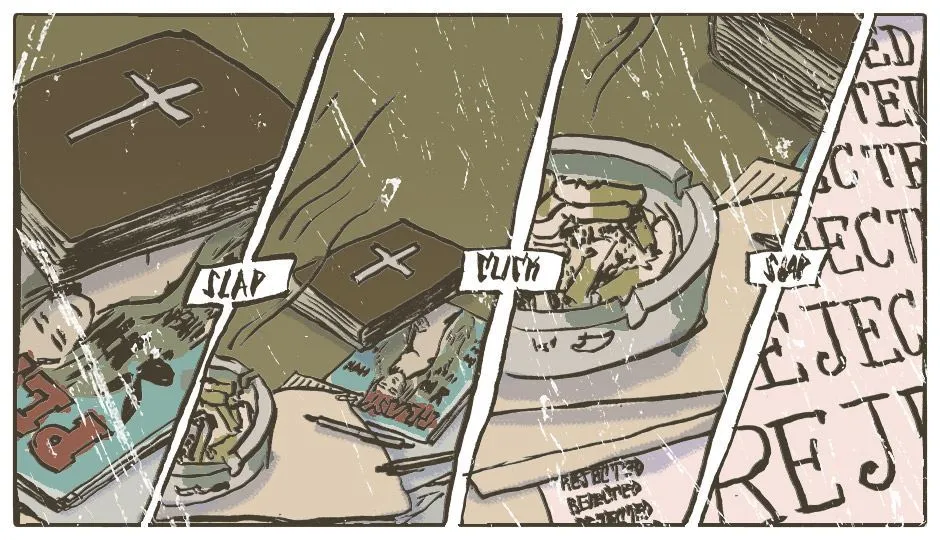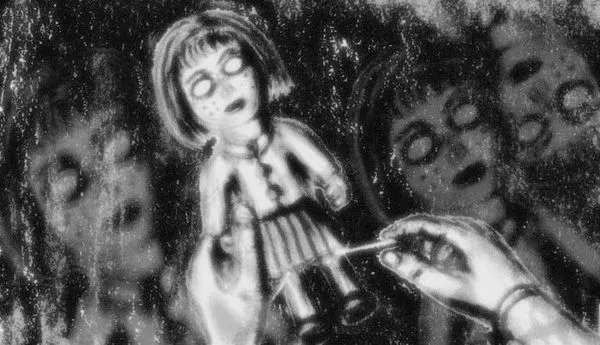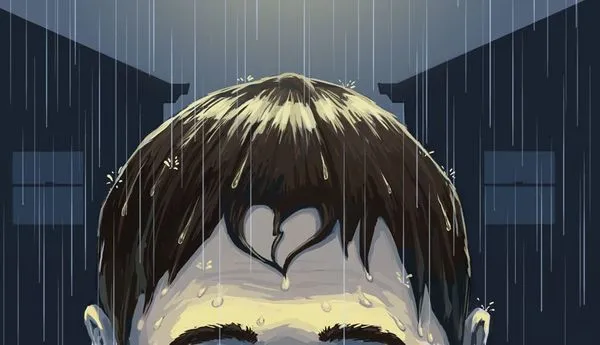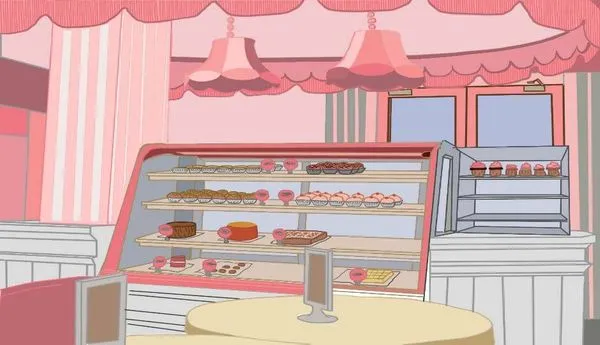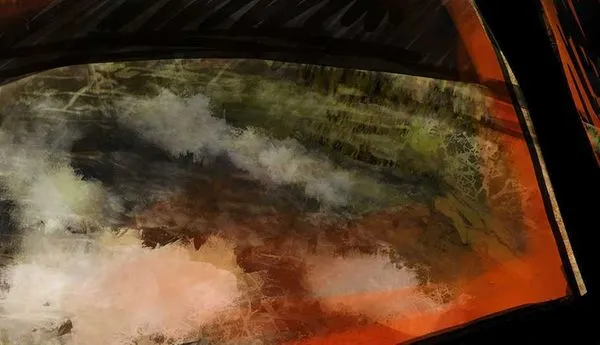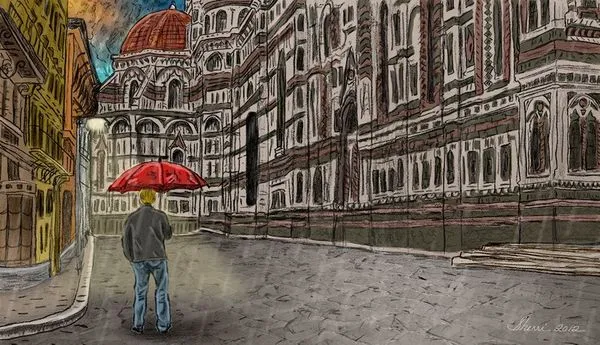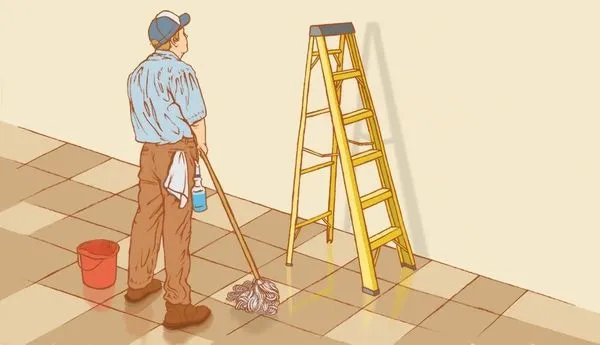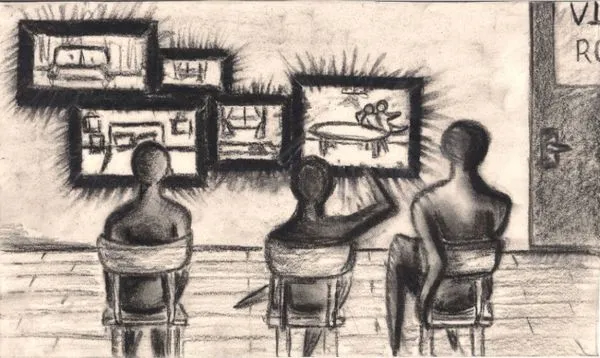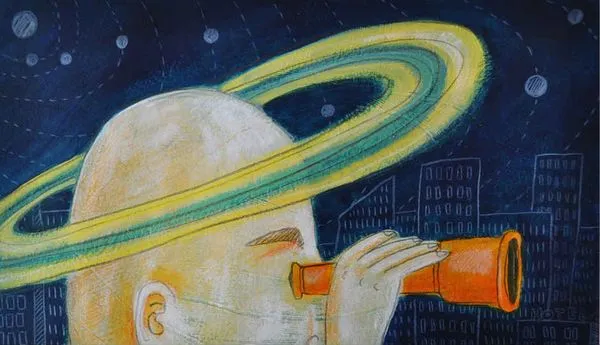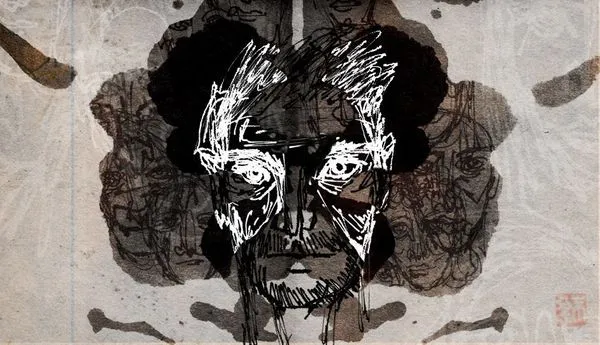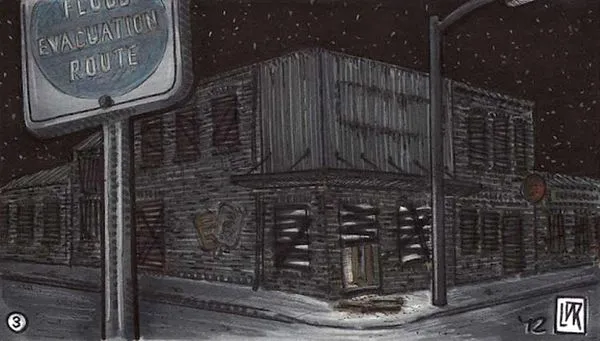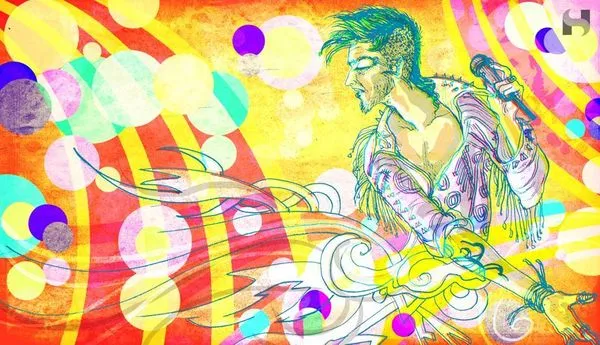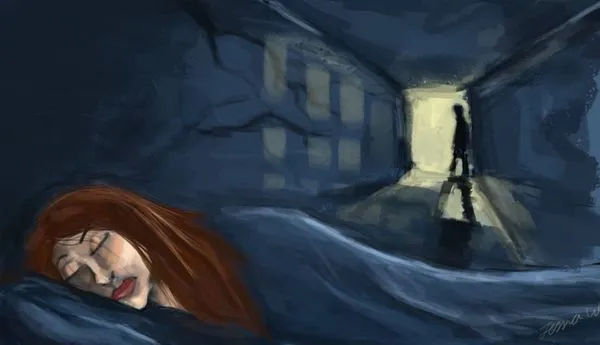Inked
Brian Dodge | Péter János Novák
Published on 2013-02-28
CLICK
A door slams somewhere in the hazy, dusty distance.
It’s a miracle of the acoustics of the grungy basement offices that the sound makes it as far as his niche; beyond the first four feet of the doorway the floor is drowned in desks. They create a labyrinth of chipped wood, brushed wood, dark oak barely showing between the paper and the pens.
CLICK SNAP
Cigarettes spring from the spaces between like funguses, throwing smoke into the Dante-esque atmosphere.
SNAP
It’s only Tuesday.
SNAP SNAP
Between the smudged paper and the blue-green smoke, the denizens of the newsroom throw themselves between desks, across wastepaper baskets, and around (sometimes through) each other as they struggle to be heard over the hustle and machine-gun clatter of a dozen typewriters. The heat and the stench of cheap ink is enough to make the interns and night-shift copy boys gag, puke, even faint.
SNAP CLICK SNAP
Stuffed into the back of the brick wall, cosy beside the cell of an editor’s booth is a nook no larger than the bathroom stall in a one-room flat.
SNAP
There’s no door. No window. The desk is a 4 by 8 piece of wood nailed with scrap hinges to the wall. An aging bucket seat sits opposite it.
SNAP CLUNK
The space is filled.
SNAP CLICK
A typewriter, no less potent than the machine of the godlike editor or chief of copy sits mute for a second. Papers conceal the dented and bruised shell of the machine. Notebooks hide it like camo-netting on a tank.
The eyes behind the desk are dark, utterly still with haunting intensity. The hands sit still, hovering, poised to strike the keys in a brutal series of blows.
The writer is clothed in shadow, in contrast against the harshness of the bulbs. A dark woolen coat contains his spindly shoulders and long arms. Those arms are soaked in blue from elbow to wrist in a tattoo that will never be removed.
They’re old war wounds; permanent testimony to his profession.
CLICK CLICK CLUNK SNAP
Smithing words wasn’t a career choice. It was ingrained, chiseled from his core through months of trial and error, meditation, frustratingly blank sessions and outpourings of paragraphs so fierce as to snap his keys and shatter his arm.
CLICK SNAP
Only recently had it become the nine-to-five.
SNAP SNAP
Leaving his one-room apartment with its two windows, records, comfortable nook and view of the park had been painful at first. This space is a hectic parody of his quiet nook.
CLACK
This profession is a thoughtless puppet of his calling.
SNAP
This report is nothing short of banal.
He pauses, resting his head back and closing his eyes, drowning out the copy boys, the fleet-of-foot reporters and the editors howling for more.
CRACK THUMP
More, more more.
He was giving them more.
The black coat he wears flickers in the hot breeze. His barely-shaven features, strong jaw and dark slants of eyebrows are etched in the swing of the closest bulb. He’s unkempt and haggard, but with an eye for observation and gait that’s hard to find and harder to miss.
CRACK SNAP SNAP
People might miss the ragged boots, trousers, and ratty old coat, but they couldn’t miss that stare.
Nor did they.
CRACK
That stare could have burned the papers spitting from his typewriter’s burned out slot.
On days when the longing for drink is strong, he swears he can hear the keyboard calling, in a woman’s husky alto, for him to drop the copy and missing persons requests from his desk and burn them to ashes.
Write what you perceive, not what you observe. How that mantra has been hammered into the typewriter through his work at home.
CLACK CLICK
How fully has that been stopped in the face of a stern editor’s face- or worse, the possibility of a missing paycheck?
There are days where he would oblige, willingly. There have been days when the verse and the prose have been bottled and tapered to management-
-those were days when he was sleeping, or sick.
It has burst.
CLACK THUNK CLACK CLACK THUNK THUNK SCRAPE TAP PING CLUNK
Words upon words upon words pile up beside his left hand in binders, notebooks, Bibles, pads and loose sheets. When he runs out of paper-
-CLICK CLICK-
-when he is drunk-
-CLACK CLACK CLUNK CLUNK CLICK-
-when he soars beyond the reach of physical description, slave to a keyboard-
-CLUNK CRUNCH TAP TAP TAP PING—
-he is free.
But until then, until the paychecks stop coming and the work slows down, he is stuck as the copy boy, pounding a desk until he earns his ink.
CLICK
He opens his eyes. Stares at what he has written. Pulls the sheet away.
It will do.
He lays it across the remains of a Bible and a Playboy, under which is the report, recently forgotten, of a homeless man’s plea for work. An old woman’s obituary. A child’s twelfth birthday.
He stacks a dozen such sheets from the pile and stashes them in his coat. They will lie in his desk at home. Then they will lie on other desks in other buildings as crowded and smoky as this one, with drunkards, English professors and literary addle-brains for judges.
Yet why does he always come back?
He opens his eyes.
The office is empty. The bulbs are dim.
Yellow papers plaster his wall.
As he turns in his seat to grab another cigarette, he is once again reminded of why he cannot sit at home gripped by dreams with a desk and a bottle and a beautiful day ahead of him.
They all spell out a single word.
REJECTED
REJECTED
REJECTED
REJECTED
He snatches a glimpse of the empty room.
Smiles defiantly.
CLICK

